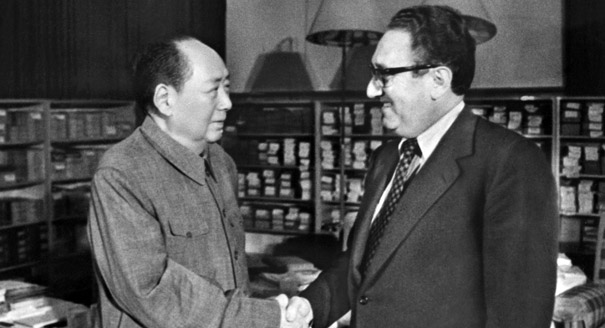Source: New York Review of Books
Almost from the beginning of its history, America has struggled to find a balance in its foreign policy between narrowly promoting its own security and idealistically serving the interests of others; between, as we’ve tended to see it in shorthand, Teddy Roosevelt’s big stick and the ideals of Woodrow Wilson. Just as consistently, the US has gone through periods of embracing a leading international role for itself and times when Americans have done all they could to turn their backs on the rest of the world.Two new books now join this never-ending debate: Henry Kissinger’s World Order and America in Retreat by Bret Stephens, a Pulitzer Prize–winning foreign affairs columnist for The Wall Street Journal. Both sound a call for more powerful and more engaged US leadership around the globe. Both Stephens and Kissinger appear to be worried about a return to isolationism, or at least a more inward-looking American policy, and are doing what they can to head it off. Both offer their own view of the relation between US interests and US values. Stephens’s formula, roughly speaking, is 90 percent interests, 10 percent values, when convenient. Kissinger frames the debate more elegantly as one of power vs. principle, but he often comes down on both sides of the fence.
Read the full text of this article on the New York Review of Books.





